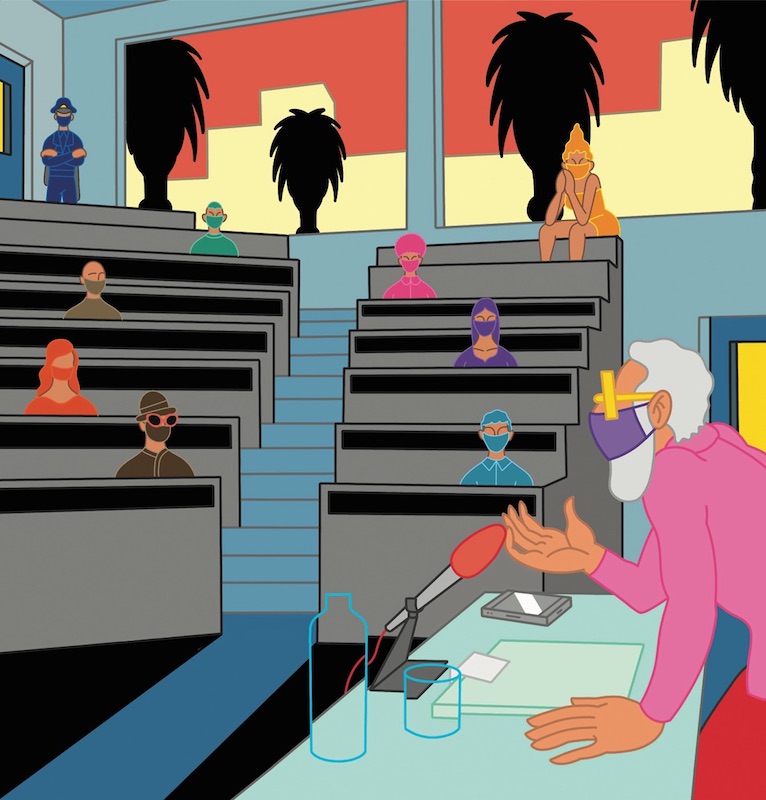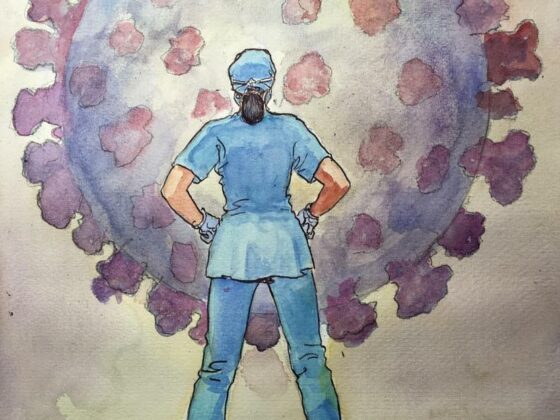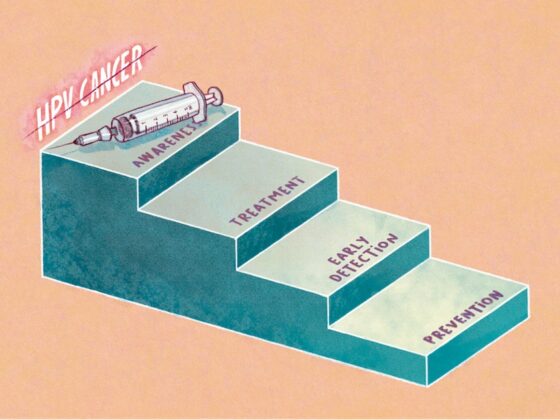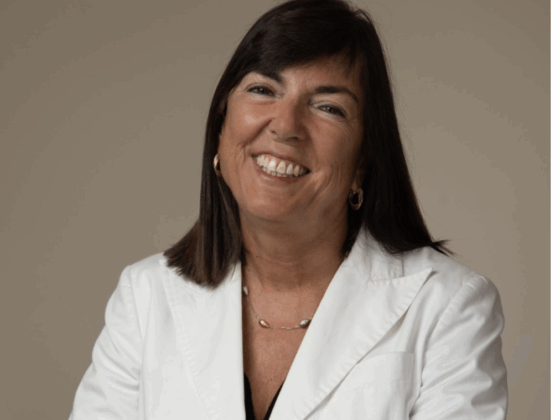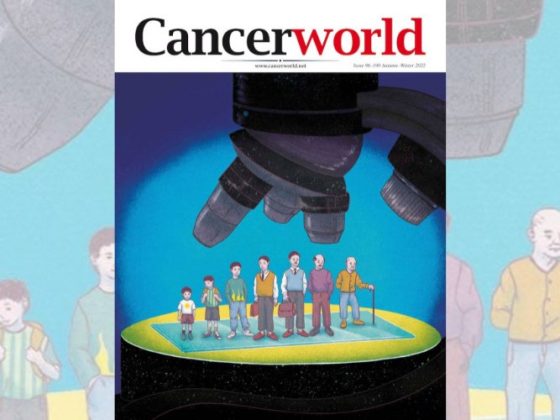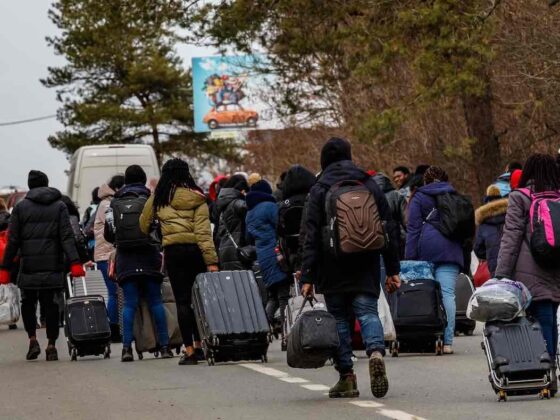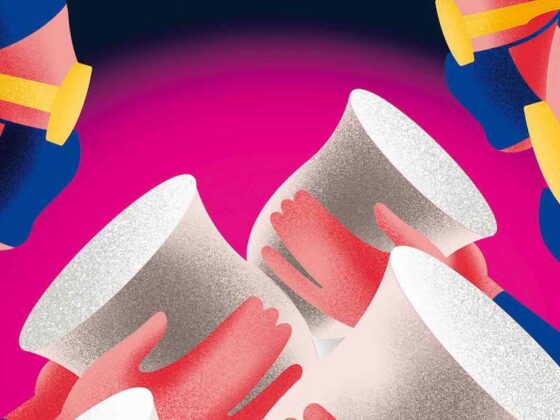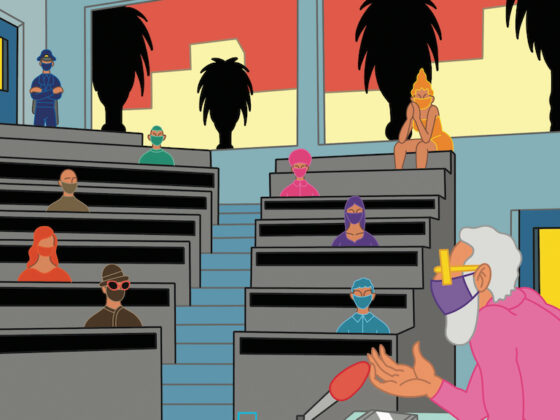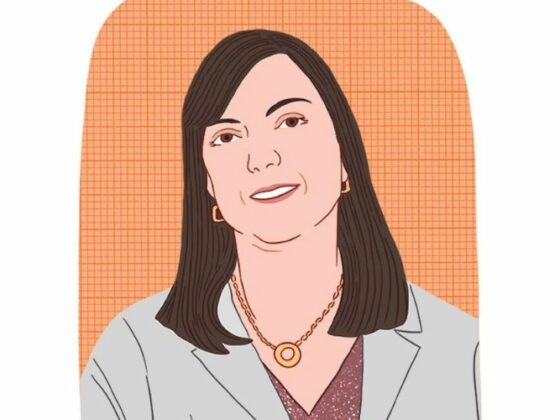‘Tackling cancer in interesting times’ was the theme of my first Editorial for Cancer World. I wrote that at the start of February this year, at a time when Europe remained largely oblivious to the implications of a new virus that had been wreaking havoc in parts of China. Within weeks, the spread of the pandemic, first to Italy and then across Europe, changed our lives as individuals and communities, in ways we had never foreseen, Currently it is hard to predict how long these ‘interesting times’ will continue, and what a new normal, when it comes, will look like.
These are testing times for the cancer community. For patients, above all, whose access to diagnostics, treatment and care has been hit in so many ways, and who have found themselves often isolated – in clinical consultations and in their daily lives – at a time when they most needed support. And for oncology professionals, trying to do their best while lacking the evidence to define ‘best care’ in the COVID setting, working within health systems often ill-prepared to deal with the high number of virus-infected patients, and at a time when social distancing made normal professional collaboration and patient care more difficult, and when many healthcare staff struggled with access to the personal protective equipment and testing needed to keep them and their patients safe.
These are indeed interesting times. But as I wrote in that Editorial, while the (purportedly Chinese) expression “May you live in interesting times” tends to be understood as a curse, evoking a sense of menace, it can also be seen as an invitation to consider the turn of human events in all their complexity.
This pandemic, this global tragedy and trauma, invites us to do just that. It invites us to ask questions about why we were so poorly prepared for this event, when the likelihood – even certainty – of a pandemic on this scale had long been predicted by scientists.
It invites us to count the cost of failing to invest in preventive measures – and to draw the conclusions and make the changes in the way we approach social issues: health, certainly, but also the environment whose intricate connection with health has been demonstrated so catastrophically by this virus.
It invites us to value our health and care workers, who were initially left holding the frontline against this global threat, understaffed and underequipped, at a great cost to their health, mental health and too often, their lives. Not just with applause and media eulogies to their heroism, but with a pledge that never again should we require such sacrifice to deal with a threat that was foreseeable and foreseen.
It invites us to integrate into our new normal everything we’ve learnt about using information technology to communicate, collaborate and teach remotely, and about the value of interdisciplinarity – looking for answers among classic ‘repurposed’ or innovative molecules developed for other diseases; virologists and oncologists learning from one another.
And at a time when facemasks and social distancing are putting up additional barriers, it invites health professionals, not least in oncology, to identify closer with their patients, recognising that the sense of fear and vulnerability in the face of a disease that we don’t fully understand, or know how to treat, or even how to avoid, is common to us all.
Illustration by Vito Manolo Roma

